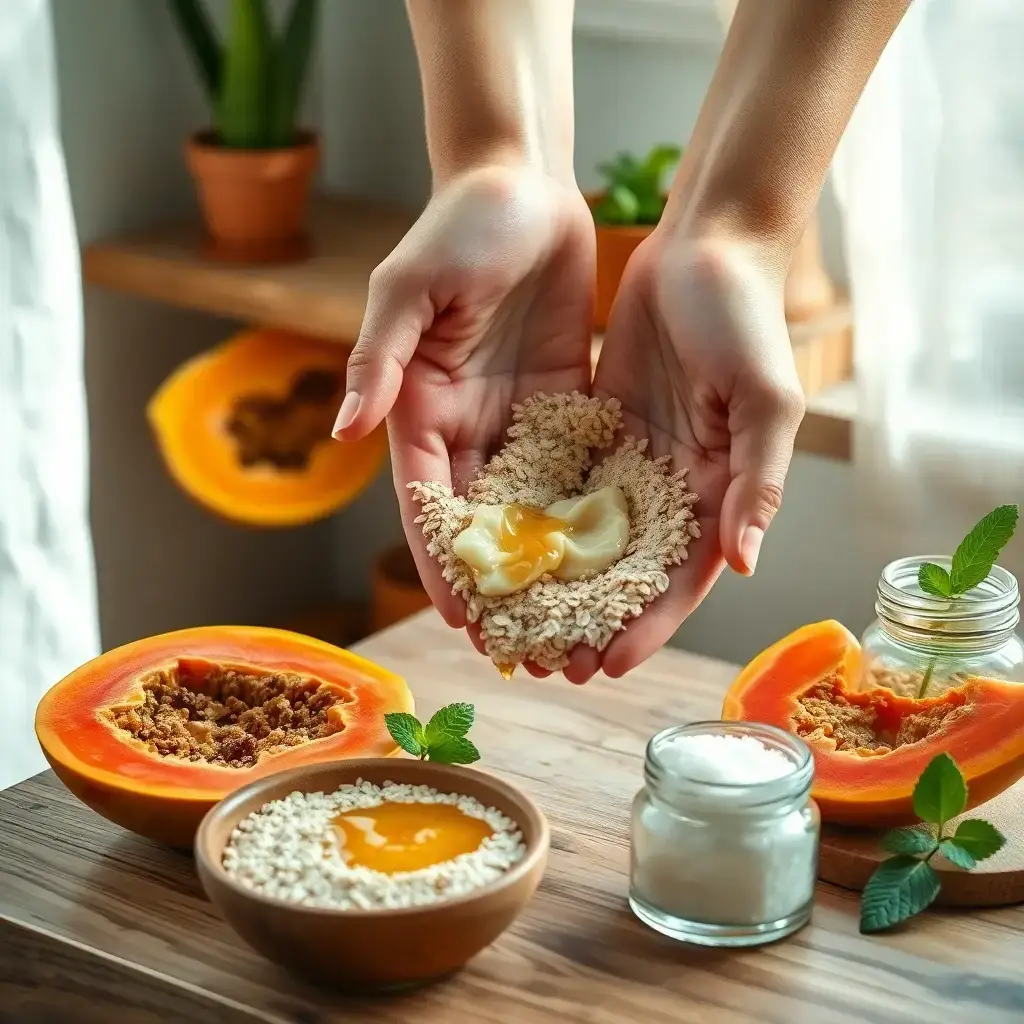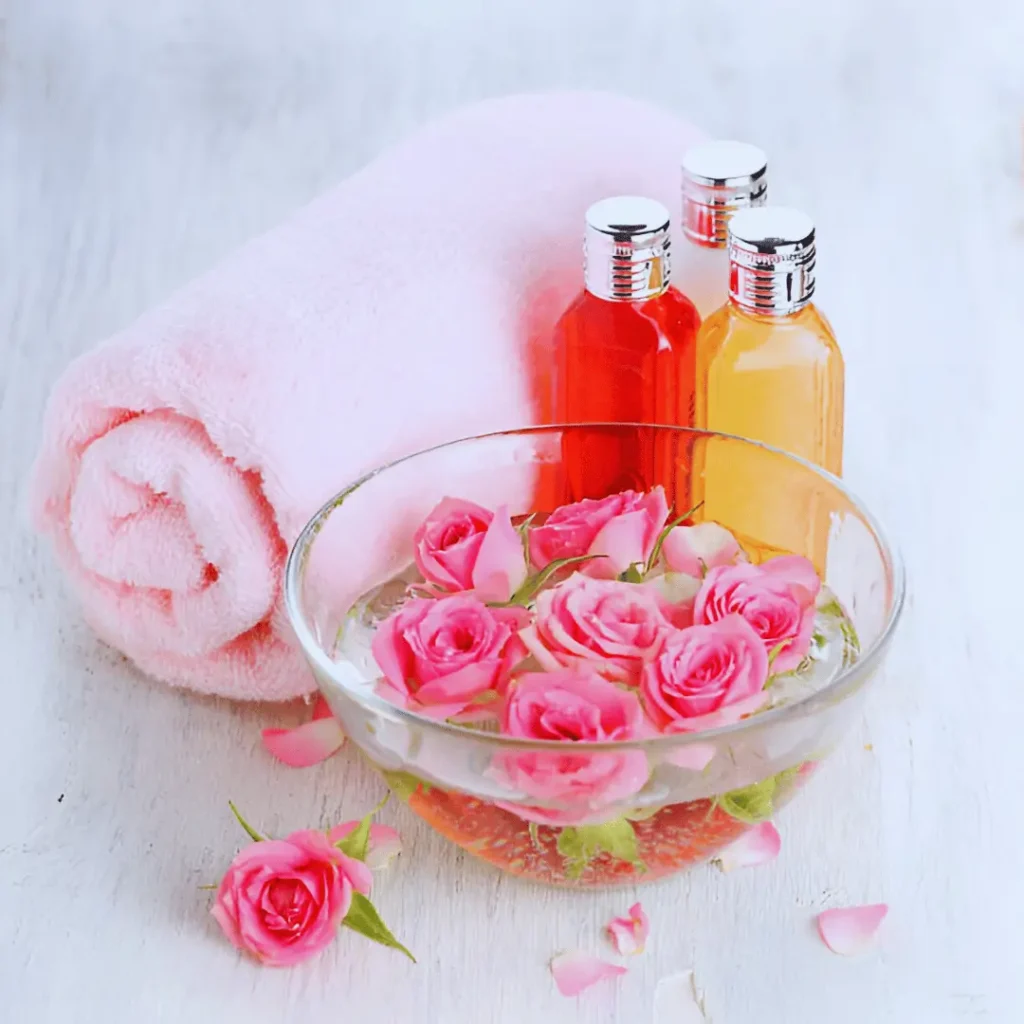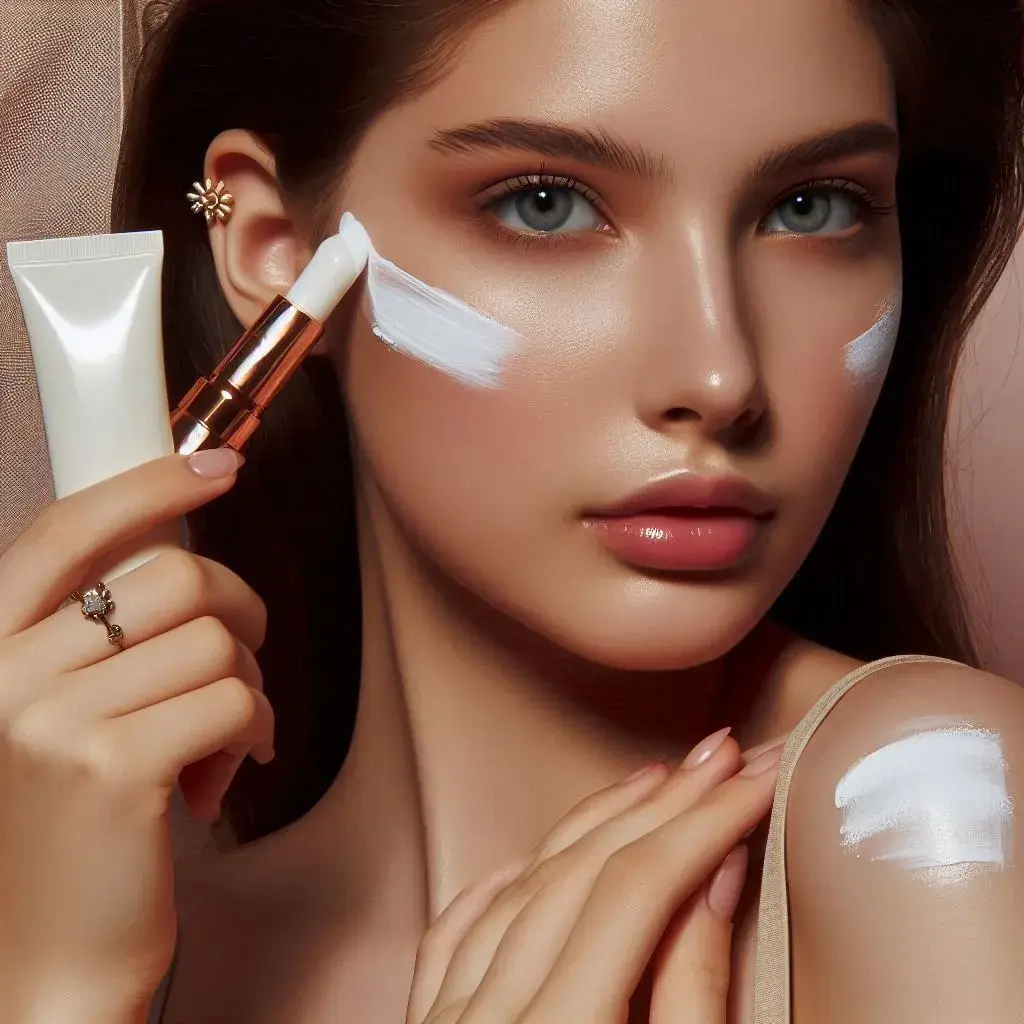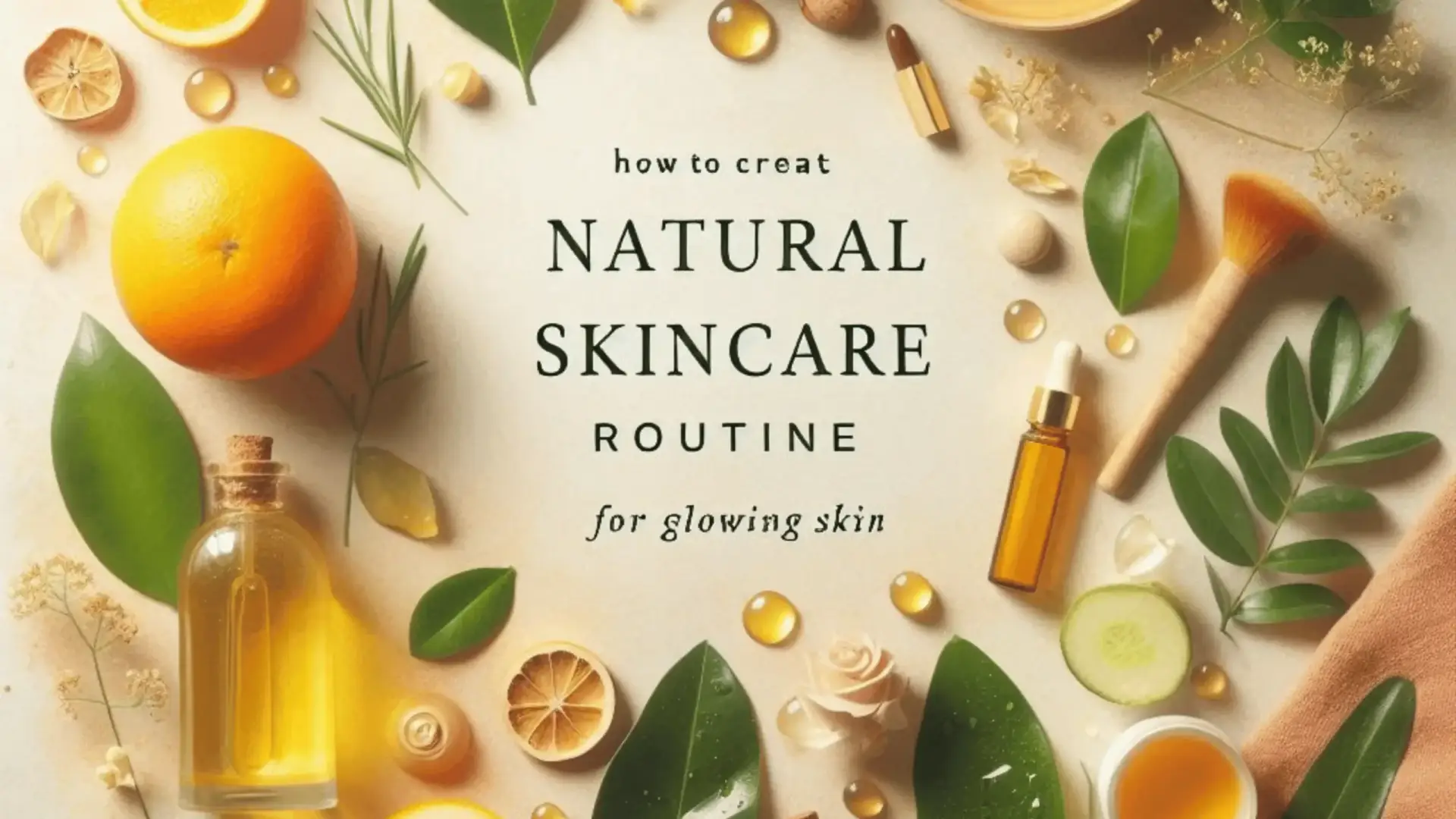How to Create a Natural Skincare Routine for Glowing Skin
Table of Contents
Introduction: The Path to Radiant, Glowing Skin
In a world saturated with synthetic products, returning to nature might be the key to unlocking truly glowing skin. Natural skincare isn’t just a trend—it’s a holistic approach that nourishes the skin while minimizing exposure to harsh chemicals like sulfates and parabens, which can disrupt the skin’s barrier and cause long-term damage. Studies suggest that natural ingredients, rich in antioxidants and anti-inflammatory compounds, can enhance skin health by promoting collagen production and fighting free radicals.
But glowing skin isn’t just about what you apply topically. Hydration, a balanced diet rich in vitamins A, C, and E, and lifestyle habits like managing stress and prioritizing sleep play pivotal roles. Think of your skin as a reflection of your overall well-being: feed it nutrients, protect it from stressors, and it will reward you with a luminous glow.

Step 1: Cleanse with Natural Ingredients
Why It Matters: Cleansing removes impurities without stripping the skin’s natural oils, which are essential for a healthy glow. Harsh surfactants can disrupt the skin’s pH, leading to dryness or breakouts.
Best Natural Cleansers:
- Honey: A humectant that draws moisture into the skin, ideal for sensitive or acne-prone skin due to its antibacterial properties.
- Aloe Vera Gel: Soothes inflammation and balances oily skin.
- Coconut Oil: Excellent for dry skin (use sparingly if acne-prone).
Pro Tip: Mix 1 tsp raw honey with a dash of aloe vera gel for a gentle morning cleanse. Rinse with lukewarm water to retain moisture.

Step 2: Exfoliate Gently
Why It Matters: Exfoliation sloughs off dead cells, revealing brighter skin. Over-exfoliation, however, can cause micro-tears.
Natural Exfoliants:
- Oatmeal: Ground oats gently buff sensitive skin.
- Sugar: Finely granulated sugar works for body scrubs.
- Papaya Enzymes: Chemically exfoliate without abrasion.
Frequency:
- Oily skin: 2–3 times weekly.
- Dry/sensitive: Once weekly.
DIY Recipe: Blend 1 tbsp oatmeal with 1 tsp honey and water. Massage in circular motions, then rinse.

Step 3: Tone with Herbal Extracts
Why It Matters: Toners restore pH balance and prep skin for hydration.
Top Natural Toners:
- Rose Water: Hydrates and reduces redness.
- Witch Hazel: Tightens pores (avoid if dry).
- Green Tea: Packed with polyphenols to combat oxidative stress.
Application: Spritz onto a cotton pad or palms, then press into skin.

Step 4: Moisturize with Plant-Based Oils
Why It Matters: Lightweight oils mimic the skin’s sebum, locking in moisture.
Oils by Skin Type:
- Jojoba Oil: Balances oily skin.
- Argan Oil: Nourishes dry skin with vitamin E.
- Rosehip Oil: Fades scars with vitamin A.
Pro Tip: Warm 2–3 drops between fingers before pressing onto damp skin.

Step 5: Use Natural Masks Weekly
Why It Matters: Masks deliver concentrated nutrients.
DIY Recipes:
- Brightening: 1 tsp turmeric + 2 tbsp yogurt (anti-inflammatory + lactic acid).
- Hydrating: ½ mashed avocado + 1 tsp honey (fatty acids + humectants).
Frequency: Once weekly, or twice for extra-dry skin.

Step 6: Protect with Mineral Sunscreen
Why It Matters: UV rays cause 80% of visible aging. Mineral sunscreens (zinc oxide/titanium dioxide) reflect rays without chemical absorption.
Application: Use a nickel-sized amount for the face, reapplying every 2 hours.
Conclusion: Embrace Your Natural Glow
Building a natural skincare routine is a journey of patience and consistency. Start with one step, listen to your skin’s needs, and celebrate small victories. Remember, glowing skin isn’t about perfection—it’s about nurturing your skin with kindness and simplicity. Ready to shine? Your radiant future starts today.
F.A.Q: Your Natural Skincare Questions, Answered
Q1: Can natural skincare products really improve my skin’s glow?
Absolutely! Natural ingredients like honey, aloe vera, and plant oils are rich in vitamins, antioxidants, and fatty acids that nourish the skin barrier, promote cell turnover, and combat inflammation. For example, a 2017 study in Clinical, Cosmetic and Investigational Dermatology found that plant oils like jojoba and argan mimic the skin’s natural sebum, enhancing hydration and radiance. Consistency is key—stick to your routine for 4–6 weeks to see visible results.
Q2: I have acne-prone skin. Are natural oils safe for me?
Yes, but choose non-comedogenic oils that won’t clog pores. Jojoba oil (which balances sebum production) and rosehip oil (high in linoleic acid, ideal for acne-prone skin) are great options. Avoid heavy oils like coconut oil if you’re prone to breakouts. Always patch-test new ingredients first!
Q3: How often should I exfoliate for glowing skin?
This depends on your skin type:
- Oily/Combination: 2–3 times weekly with gentle physical exfoliants (e.g., oatmeal).
- Dry/Sensitive: Once weekly with enzymatic exfoliants (e.g., papaya).
Over-exfoliation can strip your skin, leading to irritation—less is often more!
Q4: Can I use natural skincare if I have sensitive skin?
Yes! Natural ingredients like colloidal oatmeal, chamomile, and aloe vera are renowned for soothing sensitive skin. Avoid citrus extracts or essential oils, which can cause irritation. Opt for fragrance-free DIY recipes or pre-made products labeled for sensitive skin.
Q5: Do I still need sunscreen if my moisturizer has SPF?
Yes. Most moisturizers with SPF don’t provide adequate sun protection unless applied in large amounts (about ½ tsp for the face). Layer a mineral sunscreen (zinc oxide-based) as the final step in your morning routine for full UV defense.
Q6: Are DIY masks as effective as store-bought ones?
DIY masks can be highly effective if formulated correctly. For instance, yogurt (rich in lactic acid) gently exfoliates, while turmeric reduces inflammation. However, store-bought natural masks may offer more stable concentrations of active ingredients. Always research recipes and avoid ingredients that could irritate (e.g., undiluted lemon juice).
Q7: How does diet affect glowing skin?
Your skin thrives on nutrients like omega-3s (found in walnuts, chia seeds), vitamin C (citrus, bell peppers), and antioxidants (berries, dark leafy greens). Hydration is also critical—aim for 8 glasses of water daily. A 2020 study in Nutrients linked a diet high in fruits and vegetables to improved skin elasticity and tone.
Q8: Can natural skincare products expire?
Yes! DIY creations without preservatives typically last 1–2 weeks in the fridge. For example, a honey mask can ferment, and oils may go rancid. Store products in dark, airtight containers and discard if you notice changes in smell or texture.
Q9: Why is my skin purging after switching to natural products?
“Purging” (small breakouts as pores clear out) can happen when introducing active ingredients like fruit enzymes. This should subside in 2–4 weeks. If irritation persists, you might be reacting to an ingredient—discontinue use and consult a dermatologist.
Q10: Can I combine natural and commercial skincare products?
Absolutely! Many people hybridize routines. For example, use a natural cleanser and toner, then layer a vitamin C serum or retinol. Avoid mixing potent actives (like AHAs/BHAs) with DIY ingredients to prevent irritation.
Final Tip: Skincare is personal—experiment mindfully, and let your skin’s response guide you. Glowing skin is a journey, not a destination!


